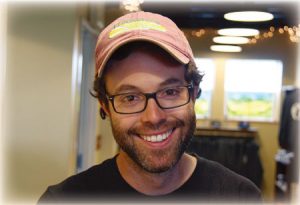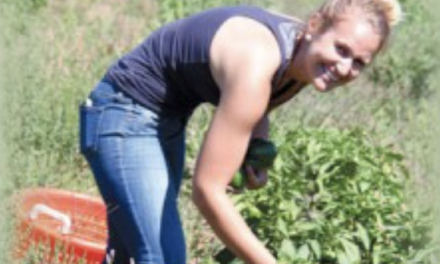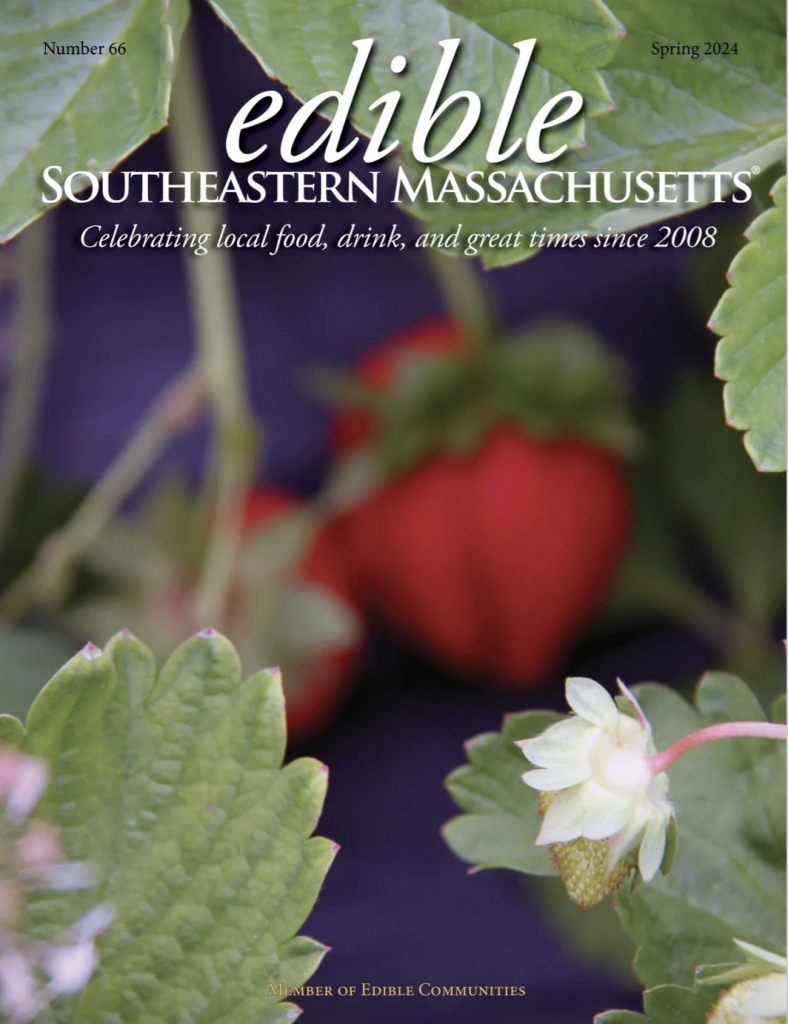Janisse Ray
by Mike Gioscia
Janisse Ray is an award-winning writer, naturalist, activist, seed saver, and gardener. She will be one of the keynote speakers at this year’s Connecting For Change event, October 24 & 25 in New Bedford. She spoke with Mike “The Green Dad” Gioscia about some of the food issues confronting us today.
Q&A
MG: I loved your book Ecology of a Cracker Childhood, which told your story of being raised in “ten acres of failed machines,” literally, your father’s junkyard in Baxley, Georgia. While some people may surmise you grew up with “nothing,” my feeling was you grew up with everything… a loving family, endless country to explore, piles of books, and a freedom from modern day distractions. Looking back, are you happy to have been such a “cracker”? Do you feel like you missed out on anything?
JR: I have reconciled myself to the childhood that I had, wonderful as it was in many ways but definitely not idyllic. Did I miss out on anything? Yes.
MG: You state “What I come from has made me who I am.” Do you think that’s a problem in the U.S. now, that there is such a focus on being “the same,” gentrifying every place to look like the next, that we’re losing the nuances, the differences, that made this nation great to begin with?
JR: Gentrification and homogeneity cause me a lot of consternation. We do seem hell-bent on destroying local cultures, don’t we? Of course the stores replicate themselves town to town, but I’m continually surprised to find amazing folks celebrating their histories and landscapes in hundreds of ways. And I think the localfood movement has done a lot to reawaken people to geographical distinctions.
MG: Whenever I read a book like your The Seed Underground: A Growing Revolution to Save Food, I start off being disgusted by the actions of Big Agriculture and the indifference of our society to these huge problems, then I get afraid for the future of food and what our grandchildren will be eating, then I end up feeling motivated to help, and empowered to get out there and make a difference. Bill McKibben, founder of 350.org, says, “If I get to feeling blue about our prospects, I reach for one of Janisse Ray’s books.” How do you keep a positive mind-set to keep forward momentum alive?
JR: Well, I don’t believe that a “positive mind-set” is necessary for forward momentum. I think we do what we have to do, whether we have hope or not. I think love is the thing that motivates us to keep doing what’s just, and ethical, and right, even in the face of some pretty dire forecasts. So the question is, How do we stay love-filled? This is a very different question from, How do we stay hopeful?
MG: You say “Seeds are only a small part of life. But they represent everything else. All our relations.” Why don’t we think about seeds as a society? Is it because we’ve been taught not to worry about food? It seems like we need to worry about food now more than ever.
JR: Yes, we definitely have to worry now more than ever, because our food is killing us. First of all, it’s less nutritious: Researchers have documented across-the-board declines in vitamins, minerals, and micronutrients in the past fifty years, and some of these are startling. We don’t even yet understand the chemistry of our bodies, while we’re eating more, less nutritive calories, and we’re seeing major declines in health society-wide. Secondly, much of our food is grown and processed using chemicals and is simply toxic.
MG: In 1971 a doctor instructed your father, who was suffering from mental illness, to “eat a nutritious diet that includes a wide variety of foods,” because some researchers blamed the high rate of mental illness in Georgia on poor diets. Today many people blame the GMO food chain and its chronic pesticide use for the rise in levels of asthma, autism, severe allergies, and ADHD. Do you think it’s reasonable to make a connection there?
“Seeds are only a small part of life. But they represent everything else. All our relations.”
– Janisse Ray
JR: I don’t know the answer. Something is definitely causing the uptick in autism and other syndromes, and neurotoxins do crazy things in our bodies. I follow the precautionary principal—until proven safe, avoid. GMOs have not been tested long enough, rigorously enough, and independently enough to be considered safe. (I will add that other factors are also implicated in the rise in autism and autoimmune diseases, including an increase in electromagnetic fields, mercury in the environment, hyper-sterilization of food, etc.)
MG: Are you surprised to see hundreds of thousands of people hitting the streets in demonstrations all over the world like March Against Monsanto? Are we reaching a tipping point here in the USA for food/seed justice?
JR: I think Monsanto and the other multinationals are reading the writing on the wall. The people’s fear of “Frankenfoods” is growing and is not going away. I am awed by how educated people have become about food rights, how they are electing not to let agribusiness feed us but to let us feed ourselves.
MG: Connecting For Change runs October 24 & 25 in New Bedford, MA. It brings environmental, industry, and social justice innovators to focus on food and farming, health and healing, green business, indigenous knowledge, environmental and social justice, women and youth empowerment, and spirituality and sustainability, all working to heal our world. We can all read and write blogs, read and write books, and watch documentaries. Why is it so important to gather together face to face over these issues?
JR: Because when people with vision are in the same room, the momentum is palpable and incredibly inspiring. We’re all able to return to our places filled with new ideas and eager to go on.
Connecting for Change www.MarionInstitute.org
Janisse Ray www.JanisseRay.weebly.com
local IMPACT
The Ivory Silo Seed Project
The Ivory Silo Seed Project is a local seed saving group in Westport headed by Bill Braun. Braun’s interest in seed saving started with his own immersion in growing food. The more he grew the more he saved; the more he saved the more he grew. “A seed is basically a tangible miracle. All life depends on seeds, and yet they provide so much for so little in return. It was this awe—this wonder shrouded in mystery—along with a sublime sense of re-connectedness, that initially drew me to these tiny miracles” he says.
Janisse Ray’s work has had a big impact on Braun as well. “I was given a copy of The Seed Underground some years back by a friend who knew of my interest in seed-saving. It hit a spot, to say the least. Her poetic sensibility that wove together the accounts of her experiences in seed-saving culture plucked deftly on my heart-strings. Here was the seed story in the voice of someone on the ground, told so beautifully and with such accessibility,” he said.
Anyone who grows their own food can save seeds, and Braun suggests gardening not just for self-reliance, but because it’s essential for the health of the environment. “By saving seed, we breed more resilient crops. Thus we can reduce, or eliminate altogether, our dependence on high fertilizer inputs and pesticides, herbicides, and fungicides,” he says.
“When we sow seed, we sow hope. We ensure a future for ourselves and for those yet to be. We kindle faith, which is what humanity needs most—second only, of course, to good food. Let me be blunt: stop being too busy to care about your food—your life literally depends on it,” Braun added.
Contact: WilliamJBraun@gmail.com
www.facebook.com/TheIvorySiloProject/timeline
Mike Gioscia is a filmmaker, writer, blogger, DJ, chicken wrangler, drummer, and Sustainability Consultant. He is also a Board Member at The Soule Homestead in Middleborough. He runs a Sustainable Consulting business called the GreenDad.com. Read his blogs at www.TheGreenDad.com.





